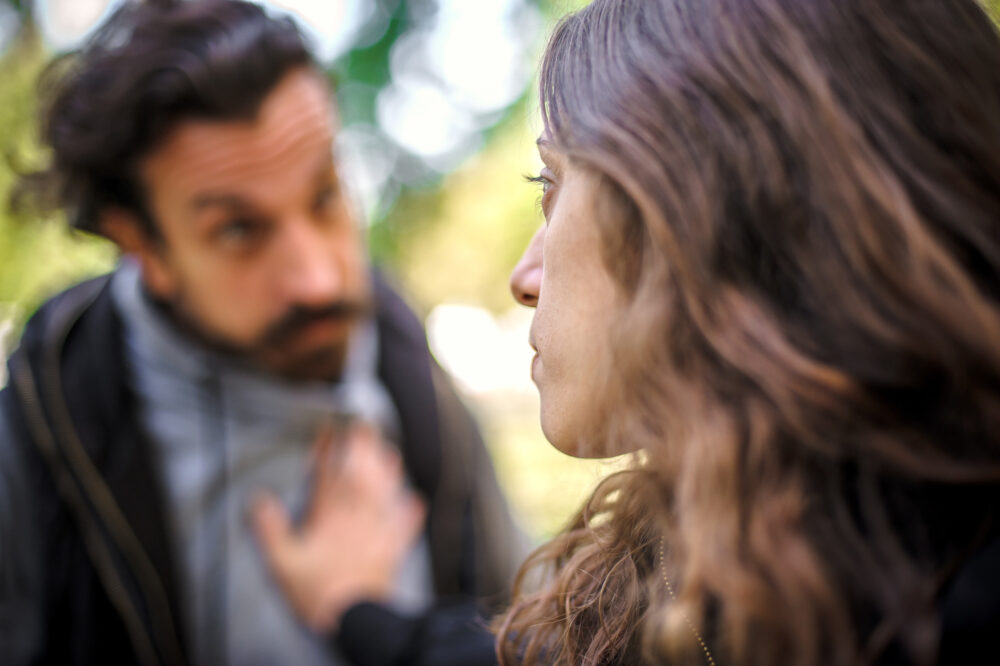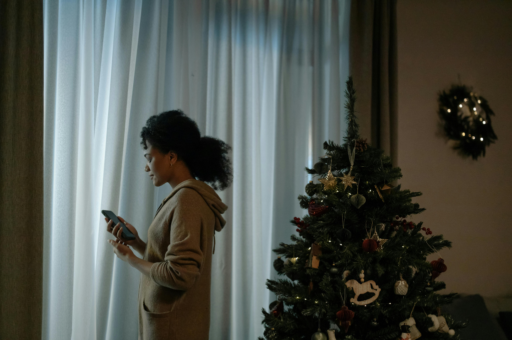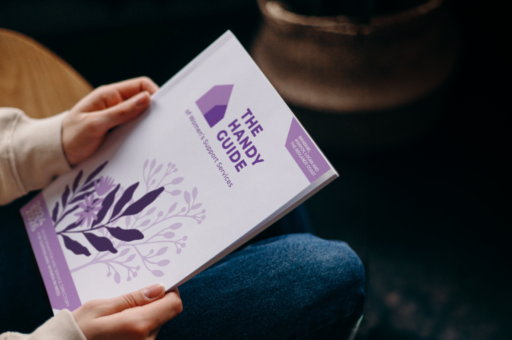
The green-eyed monster: Understanding the link between jealousy and domestic violence
May 05, 2023
Jealousy is a complex and often intense emotion that can manifest in a wide range of relationships. Stemming from a potent mix of fear and insecurity, jealousy can be triggered by anything from a flirtatious co-worker to a new job opportunity.
In romantic relationships, jealousy doesn’t always mean that abuse is coming – but it can be a warning sign of something much more dangerous.
From the green-eyed monster to white-hot rage, this article will explore the link between jealousy and domestic abuse, and how to identify problematic behaviours in your relationship.
How can jealousy lead to violence?
While mild feelings of jealousy are common in relationships, it can become a major red flag in the context of an abusive relationship.
Abusers often use jealousy as a tool for control, monitoring their partner’s every move and isolating them from family and friends. This controlling behaviour can escalate quickly, leading to emotional and physical abuse.
In some cases, jealousy can spiral into violent behaviour, leading to tragic outcomes such as domestic violence, and even homicide. Regrettably, incidents of domestic and family violence are on the rise, as evidenced by the Queensland Police Service responding to 138,871 occurrences of such violence in the community during the 2021/22 Financial Year.
The cycle of violence
Jealousy can play a significant role in perpetuating the cycle of violence in an abusive relationship. In the early stages, an abusive partner may look for any reason to start a fight, often resorting to possessiveness, jealousy and attempts to control the other person’s behaviour.
These actions can intensify tensions and escalate into physical, emotional, or verbal abuse in the next phase. At times, the abuser may express remorse and seek forgiveness, using apologies, gifts, or promises to convince the victim to stay in the relationship.
It’s a vicious cycle that repeats itself, with jealousy and possessiveness present in each phase. Recognising these signs early on and seeking help to break the cycle of violence can be a crucial step towards your safety and well-being.
The red flags of jealousy
Identifying these behaviours in a romantic relationship and noting they are problematic is an incredibly difficult thing to do. However, it is up to all of us to recognise the potential signs of relationship abuse (and support those who are experiencing it). Some of these early warning signs include a partner:
- Monitoring your every move
- Expecting immediate responses to texts and calls
- Isolating you from family and friends
- Belittling or controlling your behaviour
- Blaming you for their actions or emotions
- Using threats or intimidation to control you
Ultimately, if you find yourself changing your behaviour so that the person you’re dating doesn’t become angry, that is a clear sign of an unhealthy relationship.
Case Study: Problematic behaviour in a relationship
While physical abuse is often recognisable, it’s important to note that domestic violence can manifest in many other forms. Emotional abuse, for example, may involve a partner who displays jealous behaviours, disguising them as caring or protective actions.
This case of a young woman who wrote into an Australian newsletter column asking for advice about her controlling and jealous boyfriend, serves as an example of how jealousy can be a form of emotional abuse.
“He gets angry when I speak to any other man, he won’t let me wear certain clothing, and he is extremely opposed to my close friendship with a guy at my work. I have to tell him everything I’m doing, and where I’m going, and it just suffocates me.
It’s so hard because my family loves him and he’s such a lovely person. He loves me so much and does absolutely everything for me. When it’s good, it’s great. I am his whole world, so I have this sense of guilt if I ever were to leave, and I just don’t know what to do.”
The woman recognised that her boyfriend's behaviour was problematic, but felt guilty about leaving him because he loved her. Importantly, she also felt like she couldn't talk to anyone about the situation; this feeling of isolation is a common tactic of abusers, who want to control every aspect of their partner's life.
It’s also important to recognise that an abuser is not necessarily going to be someone who treats other people poorly in front of you. While there are no set characteristics that all abusers share, they are typically skilled at presenting a charming facade to the outside world.
How to deal with jealousy in a relationship
When jealousy becomes pervasive and intense, it has the potential to become harmful.
If you recognise the signs of jealousy and coercive control in a relationship, you can seek help. This could mean reaching out to a trusted friend, family member, or professional, or contacting domestic violence hotlines or other resources for support and guidance.
There are many resources available, such as Relationships Australia at 1300 364 277, DVConnect Womensline at 1800 811 811, DVConnect Mensline at 1800 600 636, and 1800 RESPECT at 1800 737 732.
If you are in immediate danger, contact your local emergency service.
Remember that everyone has the right to feel safe in their home – and help is always available.
From controlling behaviours to something just feeling a bit ‘off’, the red flags of domestic violence and coercive control present themselves in different ways for different people. Learn how to spot the red flags of domestic violence in your own relationship – or someone else’s.




